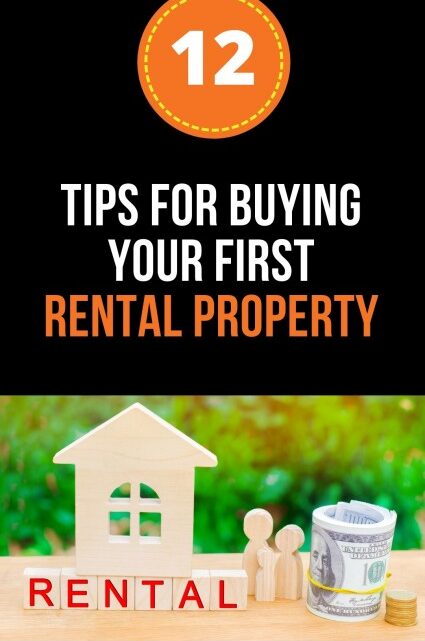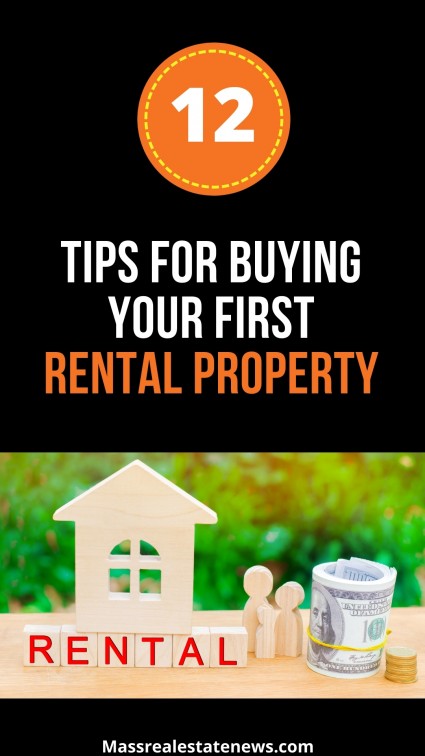What to Know When You Buy a Rental Property
If you’re looking for a way to build wealth, there is no better investment than real estate. In fact, your first rental property can be the foundation of a substantial portfolio.
This blog post will provide tips on buying your first rental property and making it successful from day one. Learn what to look for in an ideal location, the critical issues to avoid, and how to run the numbers on potential rental properties. Finding the right investment property takes time and patience.
1. Understand Landlord Duties
Before buying your first rental property, understand the landlord’s duties to avoid buying yourself a job you aren’t prepared for. A rental property requires property management and maintenance, which falls under the responsibility of the landlord. Both of these roles can be hired out, but that will cut your profits on the property.
If you can take care of small maintenance items such as touching up paint between tenant turnover or repairing drywall, you will save money by not having to call a contractor for every repair.
The same goes for property management— if you want to save money, prepare to put a system in place to manage your tenants’ rent payments and lease agreements, as well as marketing for tenants to fill vacant rooms/units.
2. Run the Numbers
When buying your first rental property, it’s pivotal to run the numbers conservatively— a good goal with rental investment properties is to get at least 1% of the home’s value each month in rent.
Your cash flow is equal to the rental income minus PITI (principal and interest of the mortgage, taxes, and insurance), property management, maintenance, and HOA fees (if applicable).
3. Account for Property Management
Property management and the value of your time are often overlooked when buying the first rental property. Even if you do not choose to hire out the property management role, you should still set aside 10% of the rental income each month to pay yourself for managing the property.
If you choose to self-manage your first rental property, have a plan for how you’re going to do this. There are free third-party apps (such as Cozy) to take care of the initial background and security check for your tenants, as well as a simple setup for electronic direct deposit.
You will also need software for electronically signing lease agreements– PandaDoc is free, but if you choose to use DocuSign, you will want to factor this cost into your monthly expenses.
4. Don’t Forget About Maintenance
Many first-time investors overlook the long-term cost of maintenance. This should be accounted for as 10% of revenue per year or 1% of the house value each year, whichever is higher. Typically higher revenue homes have more expensive issues, and houses packed to the max with tenants have more wear and tear.
If you plan to own your rental property for 30 years, this money you set aside will go towards the big expenses such as a new roof, furnace, air conditioner, appliances, and flooring.
You may get lucky with nothing breaking in the first year of being a landlord; however, this savings will come into play eventually, as all homes require ongoing maintenance.
5. Plan for Vacancies
You don’t want to assume you will have 100% occupancy all of the time in your rental property. Stay conservative by allotting 8% to 10% of the monthly rental income towards vacancies. You don’t want to over-leverage yourself– you should have money set aside from the day you purchase the property in case something goes wrong, or there is a national emergency.
6. Don’t Count on Appreciation
When calculating whether you have a cash-flowing first investment property, play it safe by planning for zero appreciation– your numbers should work day one.
Assuming that the property will appreciate is a mistake that makes them look better than they actually are when worked into the numbers. Plan for the worst-case scenario on your first rental property to hedge your bets and start cash flowing.
7. Shop Interest Rates
Interest rates on investment properties are typically higher than primary residential mortgages. Apply for an investment property loan through multiple local lenders and compare rates.
Local lenders tend to have less overhead than national lenders, as they need to stay competitive with the national brands that can afford bigger and better marketing. The lower your interest rate, the less you will pay each month; however, this may require a higher down payment.
8. Save Money for Down Payment
Unless you’re going to house hack your first rental property (i.e., live in the rental property as a primary residence), you will need 15% to 25% of the home’s value for the down payment. Lenders don’t let you put 3% or 5% down on investment properties (even if you have the best credit score and lowest debt-to-income (DTI) ratio). Many factors are taken into account, including the type of rental property and the type of loan you’re trying to get.
9. Choose a Location with High Demand
Your first investment property should be purchased in a safe location with high demand. It’s better to focus on stable rent rolls than high income with big drops when tenants turnover. Search for properties near good school districts and amenities such as parks and shopping districts.
Research the city or town for expansion plans, as this will bring more people to the area looking for a place to live. When it comes to gauging demand in your specific area, check out local Facebook housing groups and Facebook Marketplace– this will also give you an idea of what price properties are renting for in your area.
10. Avoid Major Repairs
For your first investment property, major renovations such as structural damage, fire damage, water damage, mold, etc., should be avoided unless you have prior experience. The repairs required could unveil more work than you planned into your numbers.
Focus on minor repairs such as new flooring, paint, upgrading kitchen appliances, or adding a wall to create another bedroom to lower your risk. Hiring an inspector to walk through the property before you purchase can save you from unplanned, expensive repairs.
11. Buy Property Within your Means
Don’t overextend yourself in terms of money and management. Avoid a rental property that would put you underwater if you couldn’t get tenants to fill the rooms for a couple of months or the roof starts leaking.
You also want to stay away from a property that is too big for either you to manage or someone else you pay to manage for your first rental. Bigger isn’t always better– ensure you can fill the units or rooms and keep up with all repairs that arise over time.
12. Understand Local Laws
When buying your first rental property, read up on the local laws regarding evictions, first right of refusal, landlord-tenant laws, and tenants’ rights. Avoid cities with strict rules that could work against you as a rental property owner unless you work with a professional to understand the local laws.
Have you heard of ground rent? Baltimore, MD, is notorious for this, as well as laws that make evictions almost impossible. Washington DC has TOPA rights for many tenants, making selling a rental property with tenants more of a hassle. A local attorney can help you understand the relevant laws when becoming a rental property owner in a city that is not investor-friendly.
Final Thoughts For Buying Your First Rental Property
When preparing to buy your first rental property, remember to always stay on the conservative side when running the numbers. Waiting for a rental property that fits your budget and is located in a growing area will help you to cash flow.
If you are unsure about your ability to execute any of the tips, consider working with an experienced investor who can mentor you through the process. Hopefully, you have enjoyed these twelve tips for buying your first rental property.
About the author: The above article on tips for finding a rental property was written by Andy Kolodgie. Andy is an owner of The House Guys in the Washington DC Metro area. As a local real estate investor, he helps homeowners sell their property hassle-free.











No Comment